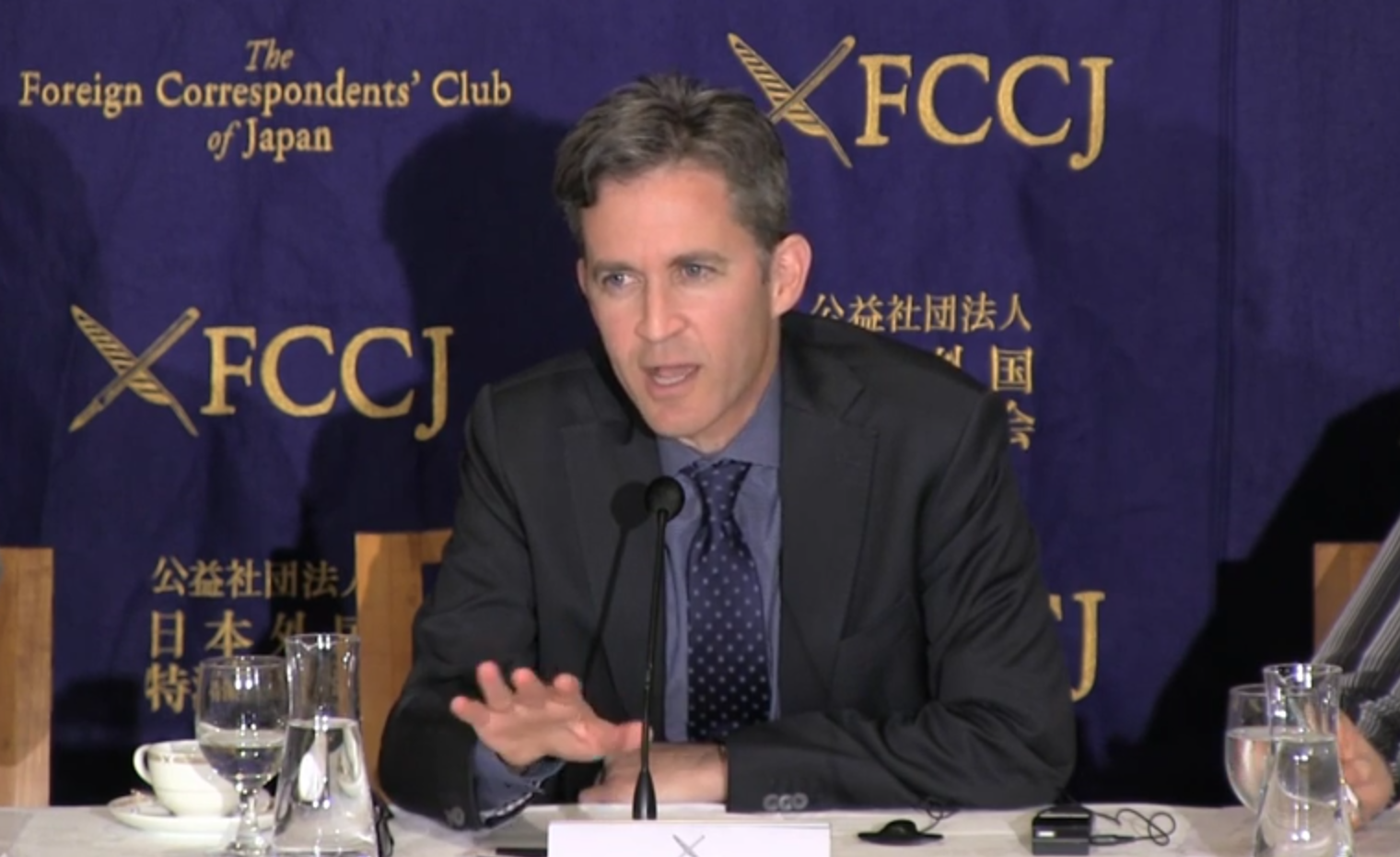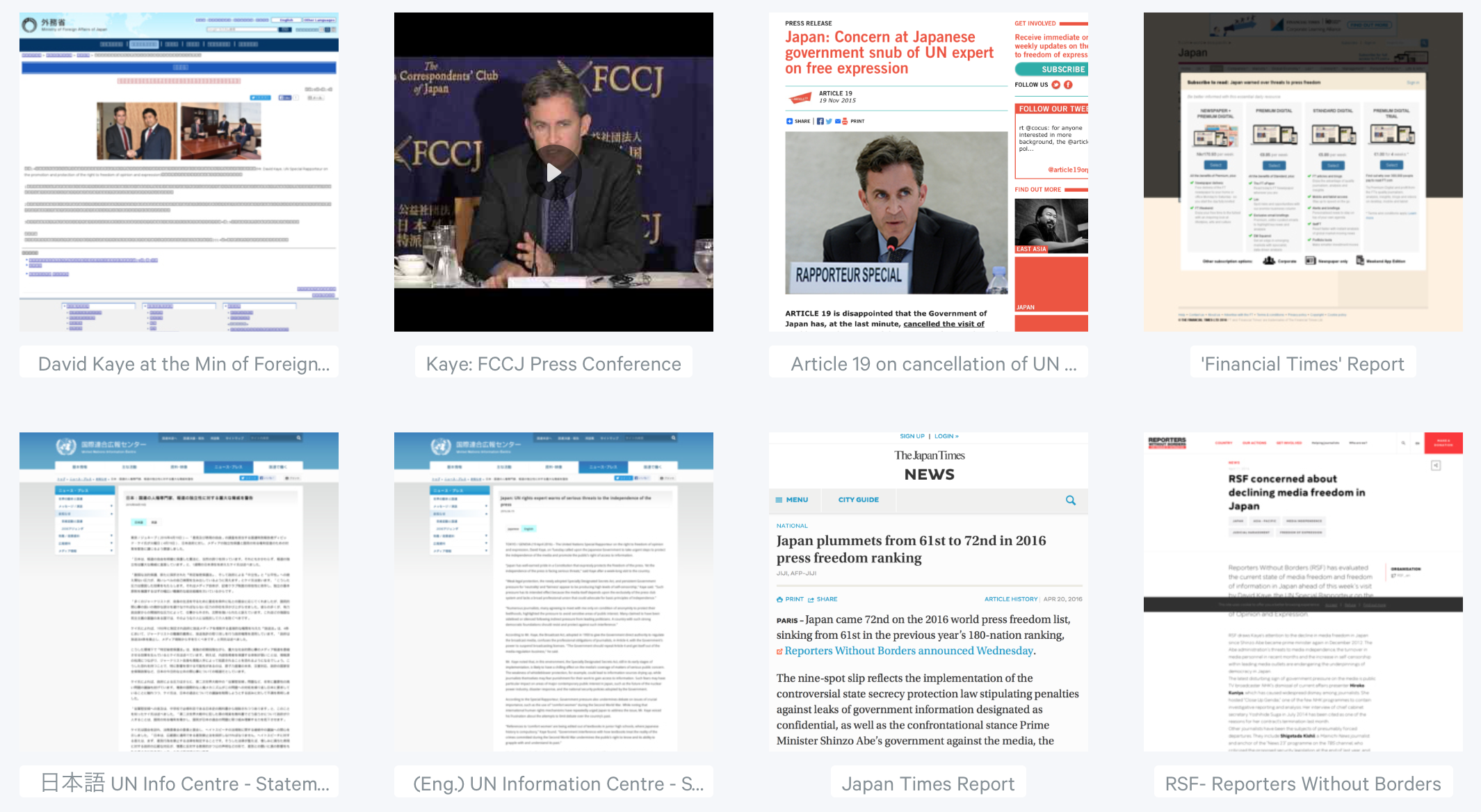
UN Rapporteur on freedom of expression in Japan
UN Concerned about Press Freedom in Japan
PUBLISHED: 21 Apr 2016TOKYO / GENEVA (19 April 2016) – The United Nations Special Rapporteur on the right to freedom of opinion and expression, David Kaye, on Tuesday called upon the Japanese Government to take urgent steps to protect the independence of the media and promote the public’s right of access to information.
“Japan has well-earned pride in a Constitution that expressly protects the freedom of the press. Yet the independence of the press is facing serious threats,” said Kaye after a week-long visit to the country."
Source: Japan: UN rights expert warns of serious threats to the independence of the press
If you’re interested in what has been going on around David Kaye’s visit, here is a collection of webpages, articles and videos that will be of use.
If you have an hour or so to spare you should listen to the FCCJ presser where he answers many of the main questions that have arisen as he looks at the press in Japan.
Roughly speaking these are:
Increasing political pressure on news organisations to ‘not upset the government’ - the actual mechanism for this pressure remains unclear though.
MIC Minister Takaichi threatened use the Broadcast Law (Art. 174) to take away licenses from recalcitrant broadcasters, that is broadcast who do not abide by the ‘legal obligation’ (she would like to argue) for ‘fairness’ implied by Art. 4. Kaye suggests a revival of the Japanese-style FCC that existed momentarily after the end of the US occupation1; this would remove regulation of broadcasting to a safe ‘third-party’ distance from government (theoretically!)
The ‘Secrets Law’; the coincidence of areas felt to be particularly sensitive by the state - security, disaster preparedness, nuclear power - and some of the prime areas of public concern means that balancing what is ‘secret’ with a public ‘right to know’ will be difficult with such vaguely worded regualtion.
‘Whistleblower’ protection is very weak in Japan.
Constitutional amendment to add caveat to ‘freedom of speech’ Article 21 - potentially could be used to block legitimate political protest/activity if government deems such activity harmful to public peace. Actual amendment is unlikely but the fact that it’s being considered is cause for concern.
‘Kisha Kurabu’; these are still as rubbish as they have been for the past n decades, they are still a needless restraint on reporting and get in the way of people understanding how their country works and how their country’s media works!
His full report will be out in 2017.
Other articles in ‘Research’
- Capturing the content of news websites · Developing techniques to capture news websites programmatically.
- MIC Survey of Broadcaster Sentiment · Outlook for commercial broadcasters in Japan
- Hazlitt article · Press on my research
- Camera angles study · Book chapter
- Productivity Surprises · Hi-ho Hi-ho, it’s off to work we go…
- Social Distance Portrayed · Visual Communication paper
- At the Digital Watershed: Terrestrial Television Broadcasting in Japan · Japanese Studies paper
- How many is enough? · Bank Accounts in Japan
- NHK announces licence fee payment rates · Television licenses
- Reading news images in Japan: Visual semiosis in the context of television representation. · PhD Thesis
- Blog
NEWS
blog content japan press freedom

